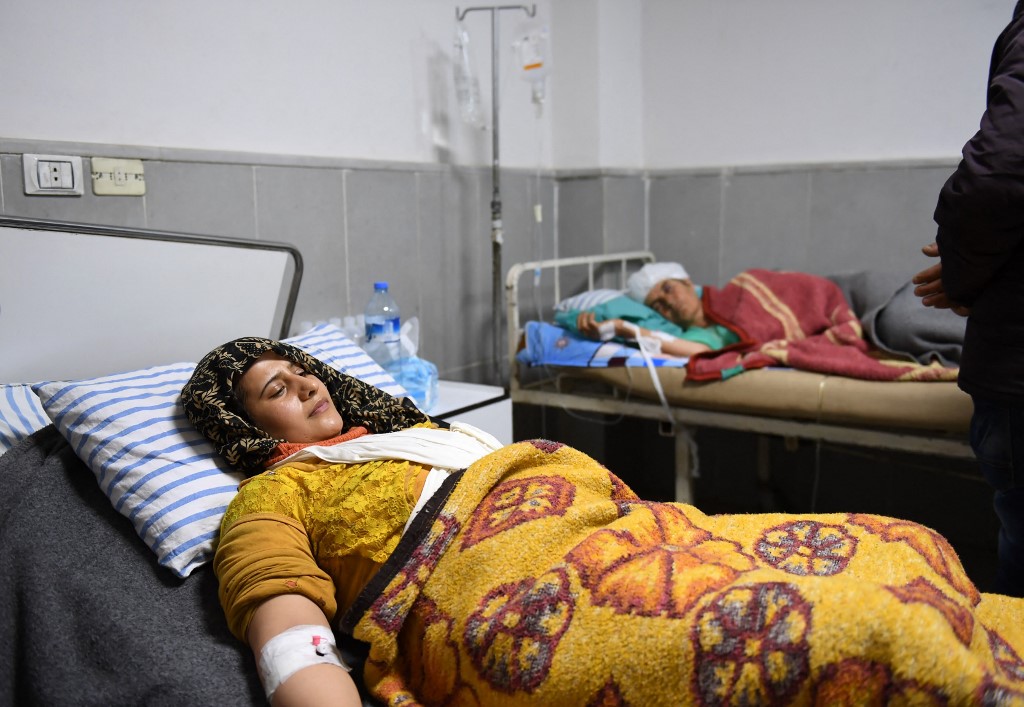Turkey has stopped the issuance of ID cards that provide free medical care for Syrians who need lifesaving treatment inside Turkish territories and replaced it with a medical tourism document valid for a month that does not cover all expenses, causing war-stricken Syrians to face expensive bills amid surging inflation in both countries, the Al-Monitor news website reported on Wednesday.
According to the report by Sultan al-Kanj, the medical coordination office of Syria’s Bab al-Hawa crossing with Turkey issued a circular on Sept. 20 stating, “We hereby inform patients who have received medical referrals that the issuance of these medical referrals has stopped as of Sept. 11, and until the activation of a new health system for Syrian patients in Turkish hospitals.”
The official temporary protection card (Kimlik) entitles Syrians to receive all Turkish government services, including free medical treatment at government hospitals and free medication from Turkish pharmacies.
The latest Turkish decision to replace the Kimlik with a medical tourism document denies Syrians all these services, worsening the suffering of many patients.
Syrians will be forced to pay for costly medical treatment that was previously covered by the Turkish government.
The medical tourism document also requires patients to return to Syria at the expiration of its one-month validity period.
“The Turkish side at the Cilvegözü border crossing with Syria, opposite the Bab al-Hawa crossing, has suspended since Aug. 16 the issuance of the Kimlik receipt to Syrian patients entering Turkey for treatment,” Bashir Ismail, director of the medical coordination office at Bab al-Hawa crossing with Turkey, was quoted by Al-Monitor as saying.
Noting that the new document obliges patients to return to Syria a month after their entry to Turkey, Ismail said it is not feasible in certain cases where treatment would take longer than a month to be completed.
“Also, the decision affects patients who are being treated in Turkish provinces that are far from the Syrian border. Meanwhile, about 450 patients coming from northwestern Syria are waiting for the new system to be activated at hospitals in the Turkish city of Reyhanlı, so that they can begin their treatment,” Al-Monitor quoted Ismail as saying.
Since early 2021, more than 6,000 Syrian patients with urgent and emergency medical cases have entered Turkey, including around 1,350 cancer patients compared to 1,800 cancer patients last year, according to the director of the medical coordination office.
According to the report, citing the director, there are two types of medical cases entering Turkey through the Bab al-Hawa crossing. The first are emergency cases, coming immediately from Syria to Turkish hospitals. They consist of premature babies, burns, war injuries and road accidents. The second, urgent cases, are patients who need liver or kidney transplants and heart surgery as well as cancer patients.
“As a result of the new Turkish measure, 120 patients have returned to Syrian territory without receiving their treatment,” Ismail was quoted as saying, adding that there are currently 600 patients who urgently need to enter Turkish territory for treatment.
Ahmed al-Khaled, a heart patient from Idlib, lamented the Turkish decision that canceled free treatment. “It deprived us of free medicines, amid soaring prices of medicines, both in Syria and Turkey. Before this decision, we would get our needed medicines from Turkish pharmacies free of charge,” he told Al-Monitor.
He said, “Now we have to pay the high cost of our treatment in Turkish hospitals, while we are already living in extreme poverty. Also, we find ourselves forced to return to Syria every month to renew our document, regardless of how far the city where we are receiving our treatment is from the Turkish crossing with Syria. This is draining financially and health wise.”
Yaqoub Salameh, the father of a sick child from the Deir Hassan camp in the northern countryside of Idlib, told Al-Monitor: “Previously, things were good for Syrian patients in Turkish hospitals. Treatment was free of charge, we received good care and the procedures were easy. Medicines were available and surgeries would be done as quickly as needed. But today the entry procedures to Turkey for Syrian patients changed. Things have become more complicated. Syrian patients — already crippled by the war — have to pay a treatment bill that they cannot afford amid the spread of poverty and unemployment back home.”



